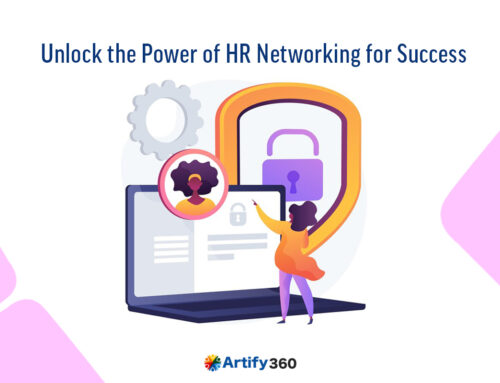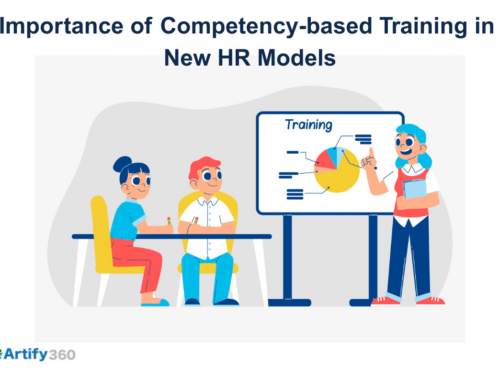In HR operations, payroll data is one of the most sensitive and critical components. Safeguarding this confidential information is paramount to building trust among employees and maintaining the integrity of an organization in Qatar. As data breaches become more prevalent, the need for robust data security measures has never been greater.
HR software in Qatar, equipped with advanced features like the payroll module, offers a secure and efficient solution to manage employee financial information. In this blog, we will explore the significance of payroll data confidentiality, the role of the HR system in protecting sensitive information, and the best practices for ensuring data security.
Significance of payroll data and its confidentiality
Payroll data encompasses many employee financial information, including salary details, tax withholdings, bonuses, and benefits. It plays a crucial role in managing employee compensation and is pivotal for maintaining employee satisfaction and loyalty. Any compromise to the confidentiality of this data can have far-reaching consequences, leading to legal and financial implications and erosion of trust among employees.
Role of HR software in payroll management
Qatar’s top HR software is a comprehensive solution for managing various HR operations, including payroll management. HR solutions streamline the payroll processing workflow by centralizing payroll data while ensuring data security. The payroll module within the HR system is specifically designed to handle the sensitive financial information of employees, providing a secure environment for its management.
Securing payroll data: Encryption and access control
Encryption serves as a vital layer of protection for payroll data during transmission and storage. When data is encrypted, it is converted into unreadable code, making it indecipherable to unauthorized individuals. Qatar HR software employs strong encryption protocols to safeguard data from potential breaches.
Access control mechanisms, on the other hand, regulate data access based on roles and permissions. The HR system allows administrators to assign specific access levels to authorized personnel, limiting the data access to those who need it for their job functions.
Compliance with data protection regulations
Data protection laws and regulations play a significant role in shaping data security practices. Organizations must comply with relevant data protection laws to ensure payroll data is handled carefully. HR providers ensure that their systems are designed in compliance with these regulations, reducing the risk of non-compliance.
Data backups and disaster recovery
HR tools ensure that payroll data is backed up regularly, ensuring data availability in case of unexpected events or emergencies. Data backups act as insurance, safeguarding against data loss due to system failures, cyberattacks, or natural disasters. Additionally, having disaster recovery plans helps restore data quickly and efficiently.
Employee privacy and consent
Obtaining employee consent is essential when collecting and processing payroll data. Qatar’s top HR software facilitates transparent communication with employees, informing them about data handling practices and privacy policies. Gaining employee consent fosters trust and promotes a positive relationship between employees and the organization.
Employee training on data security
Employee education and awareness are crucial in maintaining data security. The HR system supports employee training by providing relevant resources and information on data security best practices. Educated employees are more likely to adhere to security protocols, reducing the risk of human error-related security incidents.
Regular security audits and updates
Regular security audits assess and strengthen data security measures within HR tools. These audits help identify potential vulnerabilities and weaknesses, allowing organizations to address them proactively. Keeping HR systems up-to-date with the latest security patches is crucial in avoiding potential threats.
Third-party service providers and data sharing
Outsourcing payroll processing to third-party service providers requires meticulous evaluation of their data security practices. Qatar’s top HR providers ensure that data sharing with third-party services is carried out securely and complies with data protection regulations.
Role-based access and auditing
Implementing role-based access control ensures that only data access is limited to authorized personnel.HR software in Qatar allows administrators to assign access levels to individuals based on their organizational roles and responsibilities. Auditing tools track data access and changes, providing a detailed log for monitoring and accountability.
Transparency and communication with employees
Transparent communication with employees about payroll data security instills confidence in the organization’s data handling practices. HR tools aid in providing employees with insights into their data usage, fostering a culture of trust and accountability.
Continuous improvement in data security
Data security measures must continuously evolve to keep up with emerging threats. HR providers are committed to improving data protection features to avoid potential risks and ensure the confidentiality of employee financial information.
Final thoughts
Protecting payroll data is a legal requirement and a moral obligation toward employees. Artify360 HR software, equipped with the payroll module, plays a vital role in ensuring the confidentiality of employee financial information. By employing encryption, access controls, and compliance measures, Artify360 HR software safeguards sensitive data from unauthorized access and data breaches.
Data backups, disaster recovery plans, and employee training further enhance data security practices. By adopting best practices and leveraging the capabilities of HR systems, organizations can reinforce employee trust, protect against data breaches, and maintain the confidentiality of employee financial information.






